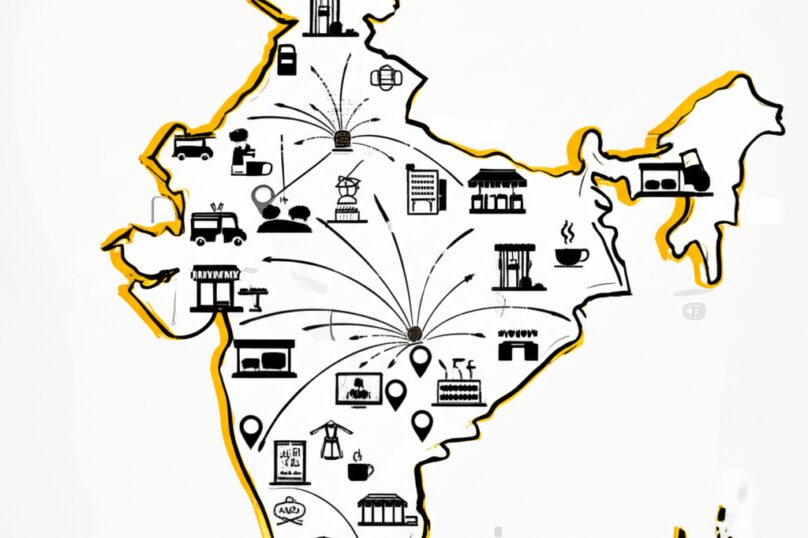Key trends in Franchise & Distribution Strategies for startups

Hello, amazing entrepreneurs, marketers, and business leaders! Today, we’re diving deep into a topic that can supercharge your startup’s growth: Franchise and Distribution Strategies. If you’re a startup in India, especially here in Tamil Nadu, understanding these trends can help you build a stronger brand and reach more customers faster.
We’ve worked with many clients right here in Tamil Nadu, helping them use these very strategies to grow their businesses. Forget complicated ideas; we’ll talk about what actually works, explained simply, just like we’d tell a 10-year-old.
Why are Franchising and Distribution Important for Startups?
Imagine your business is a small plant. To make it grow into a big tree with many branches, you need to spread its seeds. Franchising and distribution are like spreading those seeds. Franchising lets others open branches of your business (like a new “Anandha Bhavan” restaurant in another city). Distribution means getting your products to many shops (like “Aavin Milk” reaching every small store).
For startups, this means:
- Faster Growth: You can open more outlets or sell in more places quickly.
- Less Money from You: Franchisees invest their own money to open their branch.
- Stronger Brand: More presence means more people know about you.
- Local Expertise: Local partners know their area best.
Key Trends in Franchise & Distribution Strategies for Startups in India (especially Tamil Nadu)
1. Hyperlocal Focus & Tier 2/3 City Expansion
Gone are the days when businesses only focused on big cities like Chennai or Coimbatore. Now, the big growth is happening in smaller towns and cities like Erode, Tirunelveli, Salem, and Thanjavur. People in these towns want good quality products and services too!
What it means: Startups are looking for partners to open franchises or distribute products in these smaller, but fast-growing, towns.
Real-life Tamil Nadu Example: Think about a popular local fast-food chain like “Junior Kuppanna”. They started in Coimbatore and have successfully opened many branches not just in Chennai, but also in places like Madurai and Tiruppur, through smart franchising. They understood that the love for authentic Kongu food is everywhere, not just big cities.
2. Digital Integration & E-commerce Synergy
Everyone is online these days! Even if you have a shop, people will first check you out on their phone. The trend is to mix your online and offline business smoothly.
What it means: Franchisees aren’t just running a physical shop; they are also managing online orders, social media for their local area, and sometimes even delivering products ordered online.
Real-life Tamil Nadu Example: Imagine a small, trendy clothing brand called “Nalli Silks”. While they have amazing physical stores, their online presence allows customers to browse, order, and even pick up from their nearest physical store. For a new franchisee in, say, Vellore, they would manage both the store and the online orders coming from their specific pin code, making sure the customer gets their beautiful saree quickly, whether they bought it online or in person.
3. Asset-Light Models & Micro-Franchising
Starting a big business needs lots of money. But what if you could start small? “Asset-light” means you need less big stuff like land or a huge building. “Micro-franchising” means setting up very small, easy-to-start franchise units.
What it means: Startups are making it easier and cheaper for people to become their partners, reducing the starting cost significantly.
Real-life Tamil Nadu Example: Consider a successful home-based catering service called “Amma’s Kitchen” in Puducherry (close to TN). Instead of big restaurants, they offer a micro-franchise model where local homemakers in different neighborhoods can prepare their popular dishes using “Amma’s Kitchen” recipes and brand name. These homemakers operate from their own kitchens, needing very little initial investment, and focusing purely on delivery to local customers.
4. Sustainable & Socially Conscious Franchising
People today care about the planet and local communities. Businesses that show they care are loved more.
What it means: Franchises are now focusing on using local products, reducing waste, and helping the community where they operate.
Real-life Tamil Nadu Example: Think about a coffee shop chain like “Filter Coffee Bar” which focuses on traditional South Indian filter coffee. If they franchise, they might insist that all their franchisees in, say, Dindigul or Theni, source their coffee beans directly from local farms in the Western Ghats region. This not only ensures fresh, high-quality coffee but also supports local farmers, making the brand very appealing to customers who care about local sourcing and sustainability.
5. Data-Driven Decision Making
Data is like a superpower. It helps you understand what customers like, when they buy, and where they are.
What it means: Startups are using information from sales, customer reviews, and even phone app usage to make smart choices about where to open new branches or how to sell products. This helps both the main company and the franchisees.
Real-life Tamil Nadu Example: A popular chain of organic vegetable stores, “Fresh Harvest” in Coimbatore, uses data to decide which vegetables are most popular in different neighborhoods. When they open a new franchise in a town like Pollachi, they can tell the new owner exactly which vegetables to stock more, based on what customers in similar areas bought, reducing wastage and increasing sales. They might even use data to suggest the best location for a new store based on foot traffic patterns from local phone data.
Wrapping It Up
For any startup in Tamil Nadu looking to grow big, understanding these trends in franchising and distribution is key. It’s not just about selling; it’s about smart selling, connecting with local communities, using technology, and caring for the world around us.
By following these simple yet powerful strategies, your startup can not only expand rapidly but also build a strong, trusted brand that resonates deeply with the people of Tamil Nadu and beyond. Go on, make your mark!
